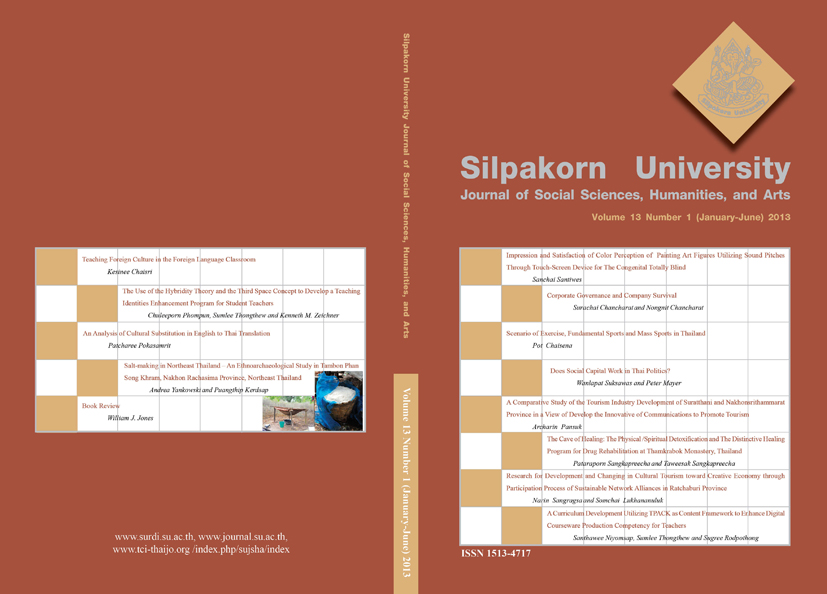Does Social Capital Work in Thai Politics?
Main Article Content
Abstract
The study employed Robert D. Putnam’s concept of social capital to study Thai politics. It had three main objectives: to investigate the capacity of social capital in Thai society to increase people’s political participation in local government, to examine whether social capital improves the institutional performance of local government, and to explore both the impact of people’s political participation in local government on the institutional performance of local governments, and the impact of institutional performance on people’s political participation, in the north of Thailand.There were three main findings in which emerged from the research. Firstly, it was found that social capital does not promote people’s participationin local politics. Secondly, it was evident that not all components of social capital can enhance the institutional performance of local government. Networks of civic engagement and generalized trust fail to increasethe effective institutional performance of local government. Lastly, it was discovered that political participation by citizens and institutional performance has no positive effect on each other. It can be concluded that Putnam’s concept of social capital shows clear limitations and cannot be employed effectively in the context of Thai politics.
Downloads
Article Details
All rights reserved. Apart from citations for the purposes of research, private study, or criticism and review,no part of this publication may be reproduced, stored or transmitted in any other form without prior written permission by the publisher.
References
Bouma, F. D. and R. Ling (2004) The Research Process. South Melbourne : Oxford University Press.
Cremer, D. D. and T. R. Tyler (2007) “The Effects of Trust in Authority and Procedural Fairness on Cooperation.” Journal of Applied Psychology,92(3): 639-649.
Easton, D. (1975) “A Re-assessment of the Concept of Political Support.” British Journal of Political Science, 5(4): 435-457.
Finkel, S. E. (1985) “Reciprocal Effects of Participation and Political Efficacy: A Panel Analysis.” American Journal of Political Science, 29(4): 891-913.
Frankfort-Nachmias, C. and D. Nachmias (1996) Research Methods in the Social Sciences. New York : St. Martins’ Press.
Grant, B. F. (1998) “The Impact of a Family History of Alcoholism on the Relationship between Age at onset of Alcohol Use and DSM-IV Alcohol Dependence: Results from the National Longitudinal Alcohol Epidemiologic Survey.” Alcohol Health and Research World, 22(2): 144-147.
Kauzya, J. M. (2003) Local Governance Capacity Building for Full Range Participation: Concepts, Frameworks, and Experiences in African Countries. Discussion Paper N° 33. New York : United Nations.
Lin, J. Y., R. Tao, et al. (2003) Decentralization and Local Governance in the Context of China’s Transition. Center for Chinese Agriculture Policy Working Paper 03-E3.
Neuman, W. L. (2003) Social Research Methods: Qualitative and Quantitative Approaches. Boston, London : Allyn and Bacon.
Putnam, R. D. (1994) “Social Capital and Public Affairs.” Bulletin of the American Academy of Arts and Sciences, 47(8): 5-19.
Siroros, P. and K. Haller (2000) “Thai Public Hearings: Smokescreen or Ceremony?” Thammasat Review, 5(1): 147-164.
Vuuren, D. v. and A. Maree, Eds. (1999) Survey Methods in Market and Media Research. Research in Practice : Applied Methods for the Social Sciences. Cape Town : University of Cape Town Press.


